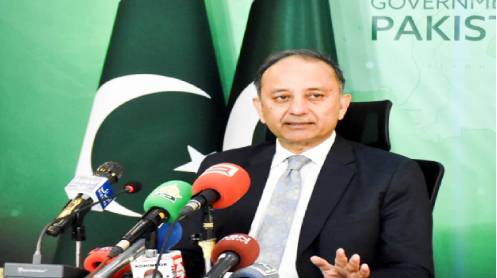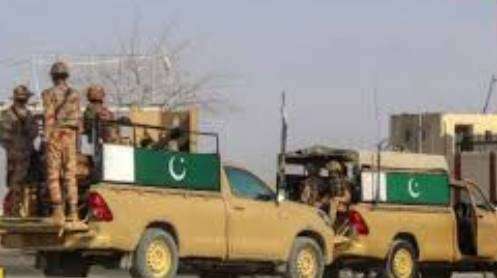ISLAMABAD: Pakistan’s worsening climate vulnerability, magnified by devastating floods, landslides and torrential rains, is the direct result of unchecked real estate expansion, reckless tourism projects, and weak enforcement of environmental laws. This damning indictment came from leading environmentalists, development experts, civil society voices, and business leaders at a roundtable on the country’s flood emergency, organised by the FPCCI’s Central Standing Committee on SDGs at the Federation’s Islamabad office.
Speakers reached a consensus that provincial authorities and environmental watchdogs must be held accountable for their persistent failure to enforce environmental safeguards. They stressed that commercial and housing schemes—particularly in Pakistan’s hilly northern regions—should never be allowed to weaken climate resilience or obstruct natural waterways, as this magnifies the lethal impact of flash floods and downpours.
Zainab Naeem, environmental research fellow at the Sustainable Development Policy Institute (SDPI), delivered the keynote address. She painted a grim picture of rampant deforestation by the “timber mafia” and warned that the loss of forest cover had made the northern belt acutely prone to disaster. She disclosed that of the US $10 billion pledged by the international community after Pakistan’s catastrophic 2022 floods, only 24 per cent has materialised. Naeem urged strict enforcement of the Pakistan Climate Change Act 2017, alongside domestic resource mobilisation, to rebuild affected communities in a climate-resilient way.
Environmentalist Arif Afridi emphasised that Pakistan’s cities must adopt sustainable urban development under strict provincial Environmental Protection Acts if they are to withstand recurring calamities.
Afzal Butt, President of the Pakistan Federal Union of Journalists (PFUJ), said the media and Parliament must dedicate far greater airtime and floor debates to environmental and climate challenges so that sound, long-term policies can emerge.
Ayesha Khan, a development economist, observed that while Pakistan already has environmental laws and regulatory frameworks on paper for over two decades, their implementation remains virtually absent. She stressed that proper enforcement is the only way to prepare vulnerable communities against future climate emergencies.
Entrepreneur Anila Fatima called upon business chambers, especially FPCCI, to make it mandatory for real estate, tourism, and hospitality members to comply with environmental laws. She warned that housing schemes, hotels, and restaurants built without regard to ecological safeguards would keep triggering national tragedies.
Veteran businessman and former Senator, Mian Muhammad Ateeq Shaikh, went a step further, accusing officials of provincial environmental protection agencies of indulging in brazen corruption. He alleged that instead of enforcing laws, these officials routinely pocket illicit payments from industries, prioritising kickbacks over their duty to safeguard the environment.
Air Vice Marshal (retd.) Ijaz Mahmood Malik, former DG Civil Defence, advocated for expanding the civil defence volunteer force to protect an ever-growing population from natural and man-made disasters.
FPCCI Vice-President, Tariq Jadoon, assured participants that the apex chamber would fully collaborate with civil society, government authorities, and donors to align business practices with environmental law.
Karim Aziz Malik, head of FPCCI’s Capital Office, pledged FPCCI’s full support for fundraising and relief campaigns for flood-affected communities, emphasising that the private sector must share responsibility in humanitarian efforts.
Naeem Qureshi, Convener of FPCCI’s Central Standing Committee on SDGs, announced that more such dialogues will be held, bringing together government, private sector, and civil society stakeholders to propose actionable solutions. Deputy Convener, Haleema Khan, also contributed, highlighting gaps in disaster preparedness and mitigation.
Meanwhile, participants also drew attention to Pakistan’s rank as the world’s fifth largest methane emitter, primarily due to unsafe solid waste dumping. Karachi alone, they warned, discharges 550 million gallons per day (MGD) of untreated sewage and industrial effluents into the Arabian Sea, compounding the country’s climate vulnerability.
The roundtable closed with a resounding call: without accountability of provincial watchdogs, strict enforcement of laws, and meaningful collaboration across sectors, Pakistan will continue to pay the deadly price of environmental neglect.
Businesses, Civil Society, Experts Unite to Demand Action Against Environmental Lawlessness in Pakistan







